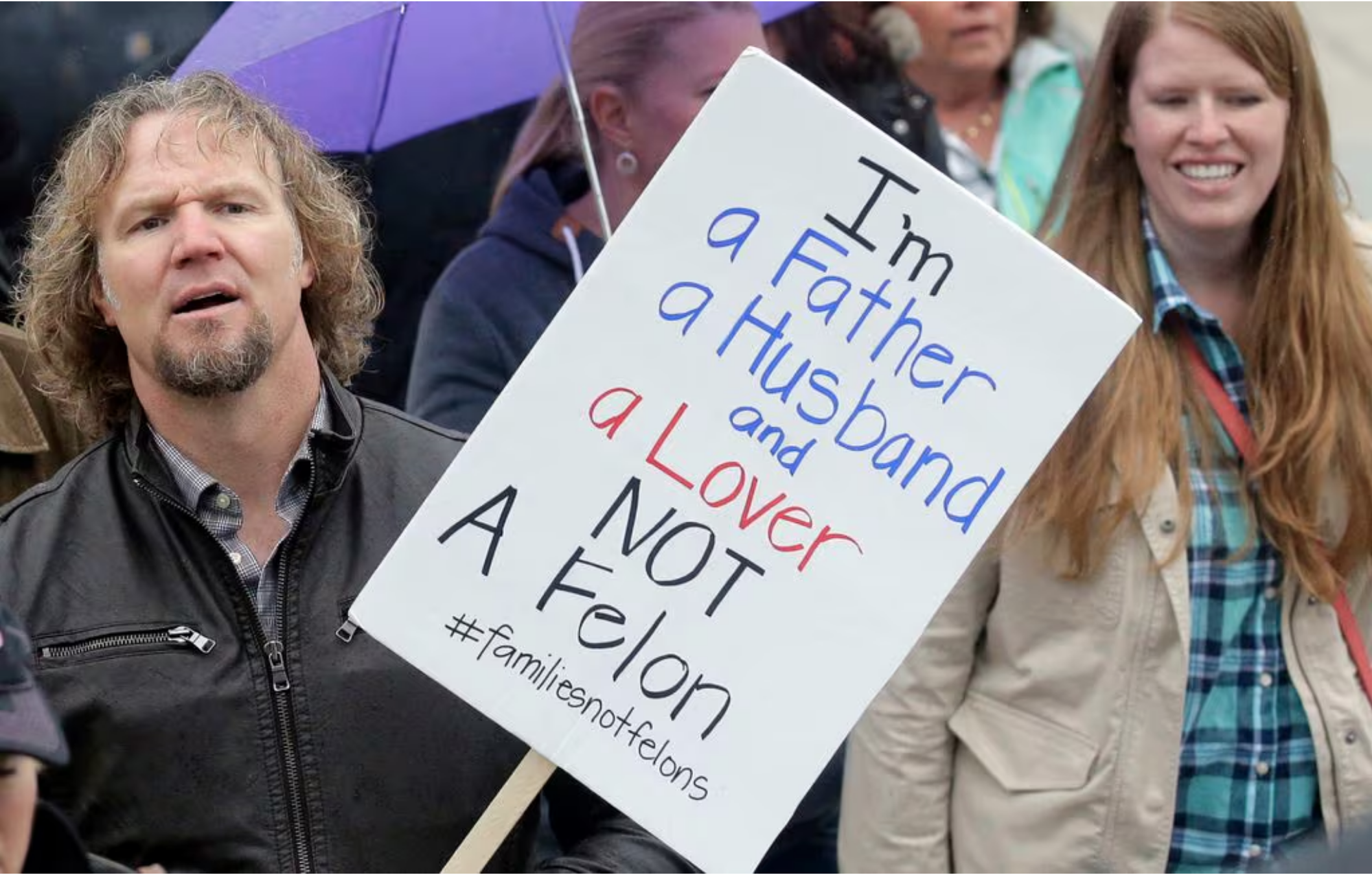Overview of the Legal Challenge
Utah’s relationship with polygamy is a unique and long-standing one. While the practice of having multiple spouses (also known as plural marriage) is illegal throughout the United States, Utah’s legal stance presents a fascinating case study for a criminal defense lawyer. Our blog delves into the complexities surrounding polygamy in Utah, exploring historical context, ongoing legal battles, and the potential influence of recent developments like same-sex marriage.
A Historical Legacy: Utah and Polygamy
The Church of Jesus Christ of Latter-day Saints (LDS Church) initially practiced polygamy as part of its doctrine. Originally, Joseph Smith polygamy This practice was a significant point of contention between the church and the U.S. government, leading to Utah being denied statehood for several years. In 1890, the LDS Church officially renounced polygamy as a condition for Utah’s entry into the union. However, some members of fundamentalist Mormon groups continue to practice polygamy, leading to legal confrontations. The history of polygamy within the LDS Church, including the teachings and practices of Joseph Smith polygamy, adds depth to the ongoing debates surrounding the legality and cultural significance of plural marriage.
The Legal Battleground: Brown v. Buhman and its Repercussions
The case of Brown v. Buhman (2013) ignited a recent debate on Utah’s bigamy law. The polygamist group, “Sister Wives,” known for their TLC reality show, challenged the statute on the grounds that it violated their religious freedom. The key point of the argument revolved around the law’s wording:
- Utah Code 76-7-101: This statute defines bigamy as a person being married and “cohabiting with or purporting to marry another person.”
The Sister Wives argued that the term “purport to marry” was overly broad. It criminalized cohabitation even in the absence of a formal marriage ceremony, potentially infringing on their religious practice of plural marriage without legal sanction.
- Initial Court Decision: The U.S. District Court sided with the Sister Wives in 2013. The court ruled that the law’s language was unconstitutionally vague and limited the definition of “purport to marry” solely to state-sanctioned marriages with a license.
- Utah’s Appeal: The State of Utah appealed this decision, citing its constitutional right to prohibit polygamy as enshrined in Article III which states: “perfect toleration of religious sentiment is guaranteed…but polygamous or plural marriages are forever prohibited.”
Constitutional Considerations: Balancing Religious Freedom and State Authority
The legal battle surrounding polygamy hinges on the delicate balance between:
- First Amendment: The First Amendment guarantees the freedom of religion. This right protects individuals from government interference in their religious beliefs and practices.
- State’s Authority: States have the right to regulate marriage within their borders and establish legal frameworks for family structures.
This creates a complex situation. While the Sister Wives claim their practice is an expression of their religious faith, Utah upholds its constitutional right to restrict polygamy based on historical and social reasons.
Landmark Cases Shaping the Landscape
- State v. Holm (2006): Prior to the Sister Wives case, a similar legal challenge was brought forth. The Utah Supreme Court upheld the state’s bigamy law, deeming it constitutional under both the U.S. and Utah Constitutions.
- Potter v. Murray City (1985): This case involved a police officer terminated for practicing polygamy. The court acknowledged the state’s longstanding stance against polygamy and declared it remained illegal.
These previous rulings established a legal precedent that restricted the legalization of polygamy in Utah.
Same-Sex Marriage and its Potential Impact
The legalization of same-sex marriage in 2015 introduced a new wrinkle into the conversation. If same-sex couples can legally marry, some argue, shouldn’t polygamy be afforded similar legal recognition?
The Sister Wives case referenced this development in their court filings, suggesting that the concept of marriage has evolved, and perhaps polygamy should be considered within this evolving framework. However, it’s crucial to note that:
- Legal Distinction: Same-sex marriage grants legal rights and protections to two consenting individuals. Polygamy involves more than two individuals, introducing complexities regarding spousal rights, inheritance, and child custody.
- Social and Moral Concerns: Polygamy often raises concerns about potential exploitation, particularly regarding women and children. Concerns about power imbalances and potential coercion within polygamous relationships remain a significant point of contention.
In exploring comparisons to same-sex marriage, it’s essential to consider the historical context of Joseph Smith polygamy within the LDS Church, highlighting how both issues have elicited complex legal and cultural responses over time. In doing so, we can gain a deeper understanding of the nuanced intersections between religious doctrine, legal precedent, and societal attitudes towards alternative forms of marriage throughout Utah’s history.
Current Situation: Decriminalization not Legalization
In 2020, a significant development occurred. Utah downgraded the penalty for polygamy from a felony to an infraction, essentially a traffic violation. This means minimal punishment, typically a fine. While this move didn’t legalize polygamy, it reflects a shift in the state’s approach.
The Road Ahead: Unresolved Issues and Potential Future Developments
While the declassification of polygamy from a felony signifies a change in Utah’s legal stance, several aspects remain unresolved:
- Uncertain Legal Landscape: The 10th Circuit Court of Appeals’ decision in the Sister Wives case (Brown v. Buhman) is yet to be delivered. This verdict will hold significant weight in determining the constitutionality of Utah’s bigamy law and the potential for further legal challenges.
- Federal vs. State Authority: The interplay between federal recognition of same-sex marriage and Utah’s continued prohibition on polygamy presents a point of potential conflict. Could future legal battles focus on establishing a right to plural marriage based on the principle of equal treatment under the law?
- Social Acceptance and Moral Concerns: Public opinion regarding polygamy remains divided. Concerns persist about potential exploitation, particularly within groups where women and children might be at a disadvantage. Addressing these concerns and establishing safeguards would be crucial for any possible future considerations of legalizing polygamy.
Potential Pathways for the Future:
Several possibilities exist for the future of polygamy in Utah:
- Maintaining the Status Quo: Utah might continue with the current system, keeping polygamy illegal but with minimal penalties. This approach prioritizes the state’s right to regulate marriage while reducing the severity of legal repercussions.
- Legislative Changes: The Utah State Legislature could potentially introduce further modifications to the bigamy law. This might involve creating a legal framework for regulated polygamous marriages and addressing concerns regarding child welfare, spousal rights, and inheritance.
- Federal Intervention: A landmark Supreme Court decision similar to the one that legalized same-sex marriage could potentially pave the way for the legalization of polygamy nationwide. However, this scenario seems distant considering the prevailing social and legal reservations.
Global Context: Polygamy in Other Countries
While outlawed in most parts of the world, polygamy remains legal or practiced in certain regions:
- Africa: Polygamy is legal or tolerated in some African countries, with varying social and legal norms around the practice.
- Certain Muslim-majority nations: Polygamy is legal under specific conditions within the Islamic legal framework in some countries.
Understanding the global context of polygamy sheds light on the complex cultural and religious factors surrounding the practice.
Conclusion: A Balancing Act
The issue of polygamy in Utah presents a multifaceted challenge. From Joseph Smith polygamy to now, balancing religious freedom with the state’s authority to regulate marriage necessitates careful consideration of potential societal consequences.
- Religious Liberty: Protecting the right of individuals to practice their faith freely requires acknowledging the potential for sincerely held religious beliefs to influence marital practices.
- Safeguarding Individuals: Addressing concerns about exploitation, particularly regarding vulnerable populations within polygamous communities, is paramount.
- Social and Legal Considerations: Establishing a legal framework for polygamy, if ever pursued, would require a comprehensive approach that ensures the safety and well-being of all individuals involved.
Moving forward, ongoing dialogue and a nuanced approach are crucial. Examining the legal aspects alongside the potential social and ethical implications paves the way for informed decision-making.
Additional Points to Consider:
- This blog serves as an informative piece and does not advocate for or against the legalization of polygamy.
- Further research into the sociological and anthropological aspects of polygamy can provide valuable insights into the practice’s societal impact.
- Public discourse should prioritize open discussions that acknowledge the legal complexities and potential societal ramifications.
By acknowledging the historical context, legal intricacies, and the evolving social landscape, Utah can continue navigating this complex issue with a balanced and well-informed approach. This case serves as an informative study on the balance between state, federal, and religious laws for a criminal defense lawyer from Stowell Crayk.

